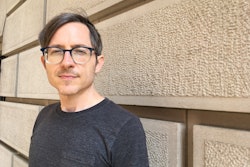I was recently approached by a friend of mine at Lincoln about suggesting ways that the university could better incorporate hip-hop into its mass communications program.
Though some Lincoln professors have tried to use hip-hop as a teaching tool in the classroom, the university has kept a safe distance from hip-hop, particularly the commercial rap music that has come to embody most people’s perceptions about the genre. Part of this also has to do with the fact that as a historically Black institution, the university has tried to institutionally promote the expanse of the African-American experience to its students. Hip-hop is seen as too “new school” by some administrators and professors, particularly given the rich history of Black cultural expression that predated rap.
However, this approach is becoming outdated, as other HBCUs have embraced the discourse on hip-hop, particularly the genre’s utility as a pedagogical tool. One of Lincoln’s prominent professors, Dr. Zizwe Poe, has tried to incorporate hip-hop in his discussions of African-American history. Ironically, the resident hip-hop “experts” on Lincoln’s campus – myself and fellow Diverse blogger Dr. Emery Petchauer- are not African-American but we use hip-hop as starting points to engage our students in wider discussions on race, class, education, media and other diverse topics.
While many schools now embrace hip-hop, particularly in designing curriculum or exploring various discourses that stem from the genre, HBCUs such as Lincoln have found a tough balance between promoting the past and acknowledging the present. But there have been a number of HBCUs that have institutionally understood hip-hop’s pedagogical value.
Howard University, for example, hosts hip-hop summits that have addressed issues of sexuality, gender and capitalism. Morehouse and Spelman colleges have done the same, and in fact, the latter made national headlines when its students challenged rapper Nelly over his use of what they considered as misogynistic images in the 2004 video for his song “E.I. (Tip Drill Remix).”
While I am a critical media studies scholar and believe hip-hop has been largely co-opted by corporations and is now a stagnant caricature, it does have value for educators looking to make complex ideas relevant to students. Moreover, incorporating some hip-hop in the classroom can spur critical discussions and allow students to have a more holistic view on cultural industries.
As younger faculty replace the retiring ones at many HBCUs, there is a chance that pedagogies of old will be replaced by more cutting-edge teaching methods that embrace popular culture. My only worry is that what works now may not be relevant five years from now, especially as students become more sophisticated in their cultural consumption.
In the meantime, I’ll look for new ways to connect The Roots and The Pharcyde with Jürgen Habermas’ works on the public sphere.
Dr. Murali Balaji is an assistant professor in the Department of English and Mass Communications at Lincoln University.


















